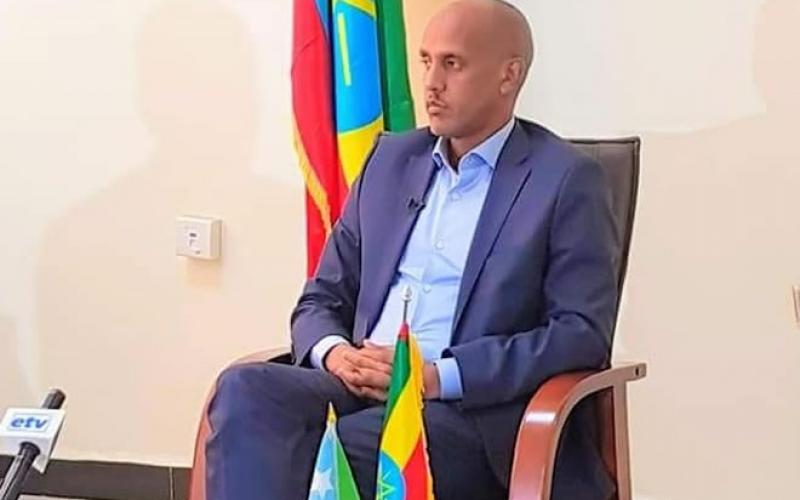
RH: Mustafe Muxumed Cumar, widely known as President Cagjar, has been at the helm of the Somali Region for seven years. However, recent developments suggest that his political seat may be in jeopardy as formidable opposition within the region appears poised to challenge his authority.
The escalating political crisis has been compounded by a tragic incident involving the Liyu Police forces, who carried out a massacre in the Dacawalay area, part of the Xarshin district. This event has ignited a political storm, with its effects already evident in the region.
During a speech delivered yesterday, President Cagjar exuded visible anger as he attempted to address the grief of families who lost members in the incident. However, he conspicuously avoided offering condolences to the civilian victims of Dacawalay, whose homes were set ablaze by security forces.
In a bid to consolidate his position and maintain control of the region, President Cagjar has initiated meetings with clans from the Hawd area who share his lineage. A recent gathering in Aware resulted in the announcement of several resolutions, yet these moves have raised concerns about further division within the region.
President Cagjar’s primary agenda appears to be suppressing the region's push for greater autonomy and quelling the voices of his opposition. Despite his public calls for peace, his administration has been accused of inciting conflict, with senior government officials employing inflammatory rhetoric that has led to bloodshed among innocent civilians.
In a controversial move, President Cagjar labeled the residents of Dacawalay as terrorists, a characterization many reject, noting that they are traditional pastoralists with longstanding ties to the outskirts of Yoocaale.
The stakes are high, as the future of the Somali Region hangs in the balance. Speculation is rife that the region could be split into two administrative zones. In this scenario, President Cagjar might only retain authority over areas north of Yoocaale, while the southern areas, including Dacawalay, could potentially form a new regional state as Ethiopia’s 12th autonomous zone.
The unfolding situation highlights the delicate political landscape in the Somali Region and raises questions about its future governance and unity.




